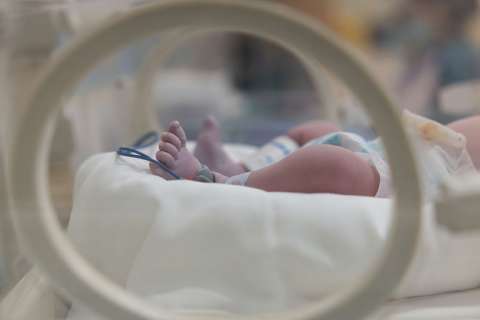Brooke Balck was 2 years old when she received a life-saving heart transplant at UCLA Health.
A decade later, she ran a marathon.
Now, the 15-year-old is speaking out for young transplant patients everywhere by sharing her story at Family Advocacy Day in Washington, D.C., an annual effort by the Children’s Hospital Association to increase awareness among federal lawmakers about the invaluable care provided by children’s hospitals.
“It feels unreal, like it isn’t processing in my head,” says Brooke, who, along with her mom, met with 13 legislators during a whirlwind trip to the nation’s capital in June.
“There’s nothing like seeing a patient and family on the other side of a medical journey who want to give back in a way that helps other kids and families,” says Kelli Carroll, MS, director of the Chase Child Life program at UCLA Mattel Children’s Hospital. “Telling their story is one of the most impactful and personal gifts kids can give. It helps others know they’re not alone and inspires providers to always strive to do better.”
A terminal diagnosis
Born completely healthy, Brooke developed heart disease after contracting a virus – its cause unknown – when she was 6 weeks old, mom Jenni Balck told legislators and aides at the Capitol.
“We were informed it was a terminal heart disease and that eventually she would need a transplant,” Balck says.
That time arrived when Brooke was 2. Balck brought her daughter to UCLA Health, where Brooke received a heart transplant and “we lived in the ICU for three months,” Balck says. Despite a bumpy first year of infections, stomach problems and skin issues, Brooke thrived.
She started kindergarten alongside her peers. Among Brooke’s earliest memories, she says, is telling her classmates during flu season, “I had a heart transplant, so you should be using hand sanitizer.”
Growing up healthy
Since the transplant, Brooke has taken medication twice daily and sees her UCLA Health cardiologists at least four times a year for checkups, blood draws and echocardiograms, as well as an annual biopsy. Other than that, “I can just live a normal teenage life,” she told lawmakers.
Find out more
UCLA Health Pediatric Heart Transplant
That life has always included athletics, such as soccer, competitive dance, tennis and track.
“We have never bubble-wrapped her,” says Balck, adding that the family always seeks guidance from Brooke’s health care team about how she can safely participate in sports. She needs extra warm-ups before any cardiovascular activity, for example, so as not to overtax her heart.
“We don’t feel like somebody would give her a gift of a new chance at life to sit around in bubble wrap all day,” Balck says. “This is a second chance, let’s live it. So she’s always done that, within reason.”
When Brooke was beginning seventh grade, she learned about an organization called WeROCK that trains kids to run a marathon. She immediately signed up.
“It just seemed like a super fun community,” Brooke says. “I got my best friend to do it with me. Then I started running and I’ve loved it ever since.”
She completed the OC Marathon in 2022 and is on the track team at JSerra Catholic High School in San Juan Capistrano.
Advocating for others
UCLA Health has participated in the Children’s Hospital Association’s Family Advocacy Day since 2017, says Michael Altschule, executive director of government relations for UCLA Health. The annual multiday celebration brings young patients from across the country to Washington, D.C., to share their experiences with lawmakers considering bills that impact access to pediatric health care.
Patients and families sharing personal stories about their health care journeys “are living, breathing examples of why children’s hospitals are so important,” Altschule says.
For Brooke and her mom, it was a thrill to visit the Capitol and meet with representatives and their aides. They practiced a tag-team telling of their story, with Balck discussing her daughter’s infancy and Brooke picking up the story from her early days in school. Despite repeating it more than a dozen times, it never stopped being exciting, mother and daughter say.
“I honestly just loved being there, meeting people and seeing everyone’s offices,” Brooke says. “It was really cool.”
The duo also had an unexpected meeting with a stalwart California politician: Nancy Pelosi, whom they ran into when picking up souvenirs in the House of Representatives gift shop at the Capitol.
“She was very sweet and gracious and asked Brooke about high school,” Balck says, adding that they snapped a quick photo.
While the experience deepened Balck’s understanding of political processes, the real highlight was spending a few unforgettable days bonding with her daughter. Tears fall as she talks about it.
“I love watching her bloom and stand up for other people,” Balck says. “I’m always just so, so, so, so proud of her. But seeing her represent others and speak so eloquently and confidently … I’m so proud.”
Speaking up for others was a powerful takeaway for Brooke, too. She goes to a “heart camp” every summer for kids with cardiac conditions. This year, when she goes, she says, “I’ll be able to look at my friends and be like, ‘I did something for you also.’”



